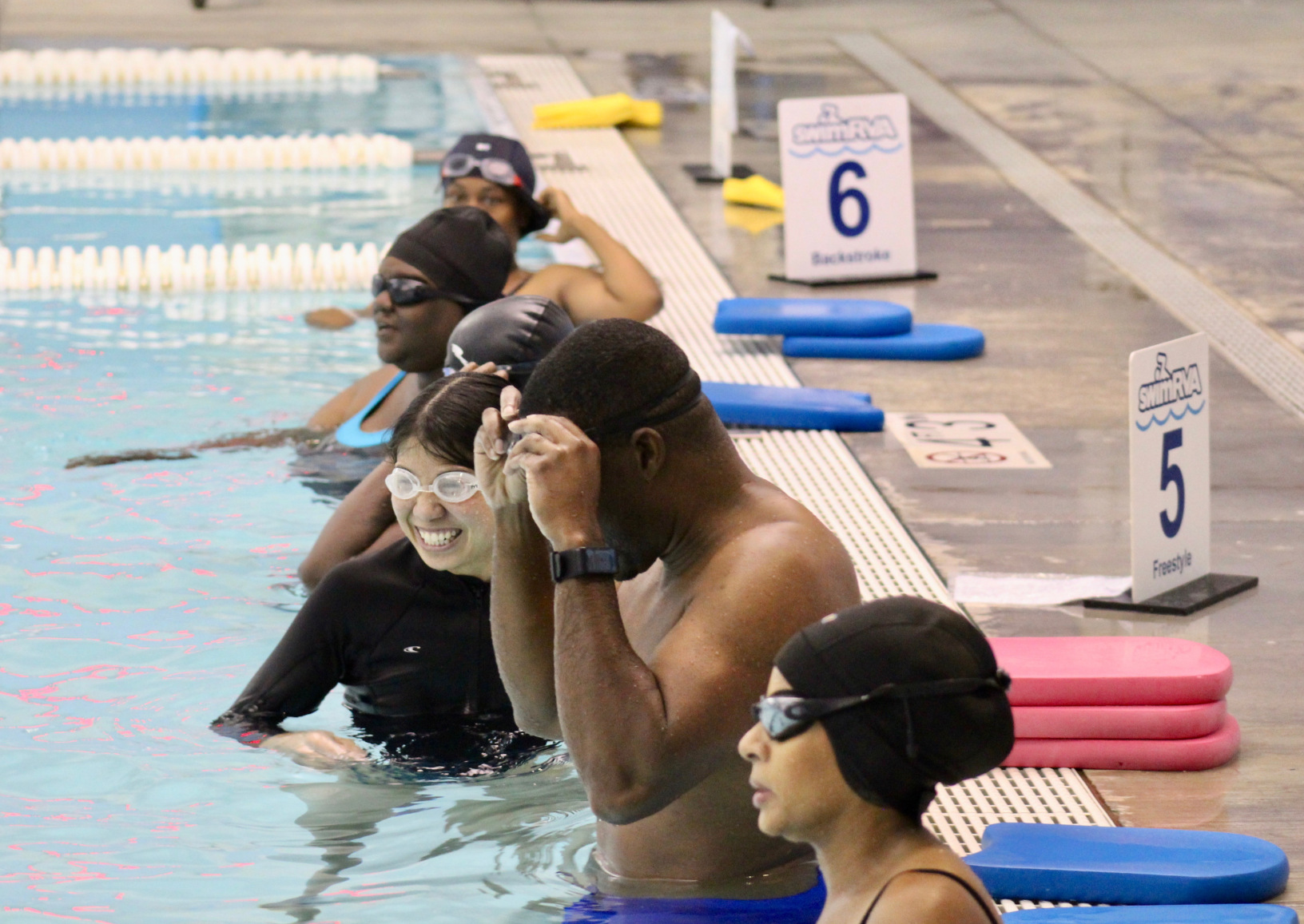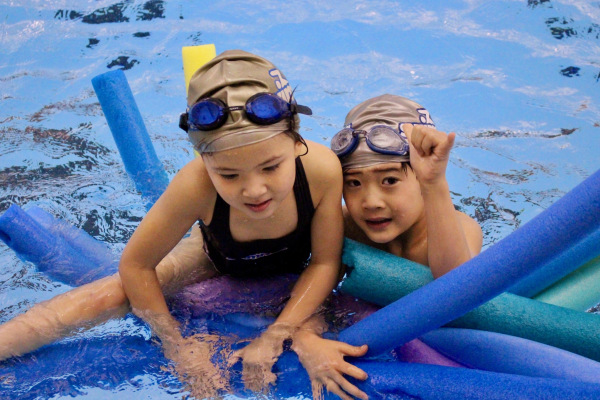There’s an old saying you’ve probably heard, something about a dog learning new tricks. This is a MYTH! You’re never too old to learn anything, especially how to swim. Do you need proof? Marie Kelleher, who didn’t begin swimming until later in life, quickly made up for lost time setting 14 U.S. National age group records starting in her 80’s. In May of 2012, Marie became the oldest American to compete in a United States Masters Swimming competition. At that time, she was the only known centenarian to compete anywhere in the United States in the 100-meter freestyle.
Health awareness has increased over the last few decades, which is great considering the close proximity Richmond is to the James River. It has been voted the “Best River City” which is a great motivation to make sure you can take full advantage of what it has to offer. Here are six more reasons you should take swimming lessons as an adult:
1.) Swimming is a Great Fitness Tool
Swimming is a great workout. It trains your entire body and serves as conditioning for other activities. There’s even a Richmond-based martial arts camp that uses swimming as part of its weekly training routine.
Aquatic exercise, especially in warm water, relieves joint pain and increases flexibility. This is due to the water minimizing the impact on your muscles. Studies have found that swimming can also improve blood sugar control. It works both because it provides an aerobic workout and because of the resistance provided by the water, it also builds muscle. As a result, your muscle cells absorb oxygen and nutrients more efficiently, which helps your body regulate blood sugar and heart rate.
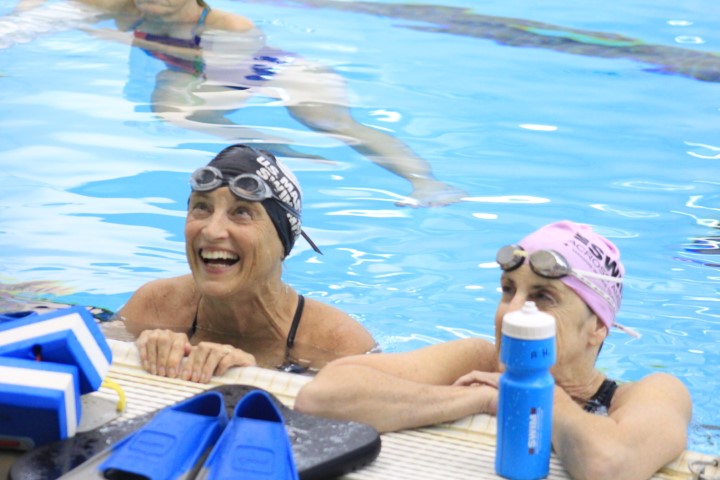
2.) Swimming Lessons Can Improve Mental Health
“Swimming for your health” also applies to your mental and behavioral well-being. Dr. Denise Park of the University of Texas conducted a test on the effects of learning new things at an older age. She found that studying new, challenging skills—such as swimming—wards off cognitive decline, such as dementia and Alzheimer’s disease. Exercising for 45 minutes a day, three days a week can increase your brain volume.
It’s important to take care of your mental health. Stress and anxiety can weaken your body’s immune system. Swimming can be used as a self-care activity to release mental stress. Aquatic activity is known to have these benefits:
- Promotes peace and relaxation
- Alleviates stress
- Improves coordination, balance, and posture
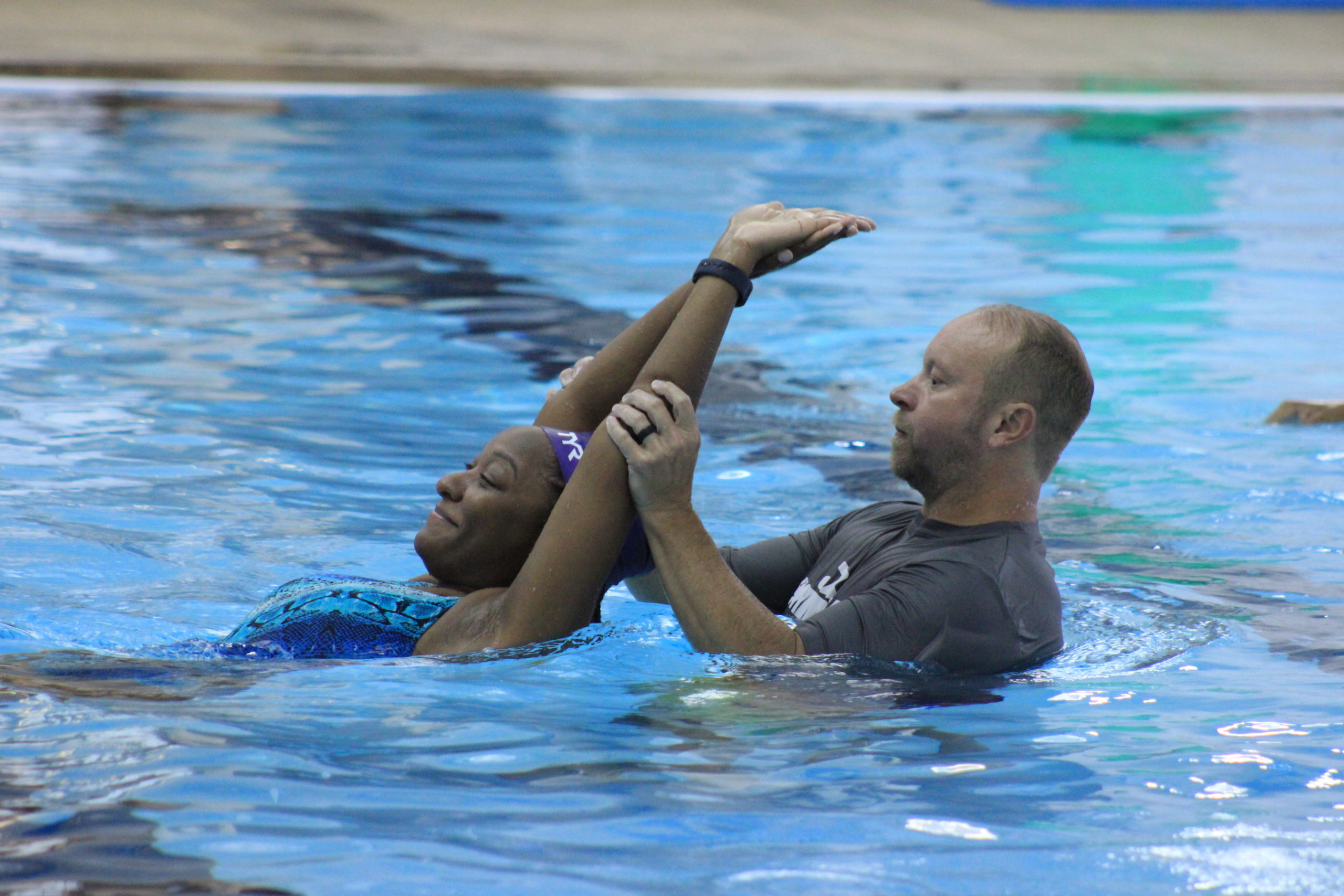
3.) Swimming Builds Confidence
A main reason people give for avoiding swim lessons is, “I’m embarrassed that I can’t swim,” and that’s understandable. Researchers have found that adults have a harder time than kids admitting a lack of knowledge . If you were faking your smarts on a first date, that would be one thing. When you’re exaggerating your swimming ability, that can be dangerous. Run a quick Google search and you’ll see that, while more than 80% of adults will claim they can, nearly 50% of all Americans cannot swim.
Understand that mastering swimming isn’t going to happen in a day—or even a month. It can be helpful to look for class structures that offer a small student-to-teacher ratio so that you have more time to concentrate. You might also benefit from a station-based program, such as SwimRVA’s Swim School, which breaks down different skills into groups.
Keep in mind the main purpose of learning in a class setting. There are skills that other students, like you, do not yet know. If those other students were already pros at swimming, they wouldn’t be taking a class. They’re too busy setting their own goals to be worried about your opinion, so don’t let the (highly unlikely) fear of their criticism halt your progress. Station-based programs are a great help here, since you’ll be able to appreciate small victories frequently rather than being fixated on an overwhelming end goal. One member of the SwimRVA Swim School had this to say:
“[It provides] achievable levels of skill-building. You work on a few things at a time and get to celebrate your achievements often enough that it provides encouragement.”
If group settings are not your cup of tea, private and semi-private lessons are always a possibility. Be sure to explore the different options that your local swimming facility offers.
4.) Group Lessons Can Create and Strengthen Connections
Being in a swim class with your own age group is a great way to find like-minded individuals to relate to. Soon, you’ll know people you can look forward to seeing in the water at each lesson. Having a buddy there to share your struggles and successes can make each lesson that much more enjoyable. Not only is that good for your mood, but also it keeps you invested! Studies show that about 40% of people drop a class soon after starting, versus just 6% of those who participate with a friend. You’ll push each other to work harder, stay committed to going back for each class, and share your accomplishments (Runtastic). Also, thanks to the chance to socialize with that friend in class who also claims to stink at swimming, you’re building a defense against social isolation—a potential cause and a symptom of emotional or psychological challenges.
5.) Swimming Lessons Can Save Your Life
Fear of water is a very common phobia. The surprising thing, though, is that a large majority of people who cannot swim will still interact with large bodies of water during the year—taking cruises, having pool parties, fishing, and so on—without the basic skills to save their own lives. You must get past the fear for your health’s sake.
Conquering your fear may not happen overnight. It may even take you a few years to get into the water. That’s fine. Consider 92-year-old Stasia Kowalski. She didn’t learn to swim until she was about 40 years old because of a terror of drowning. She ended up breaking records in her very first swim meet.
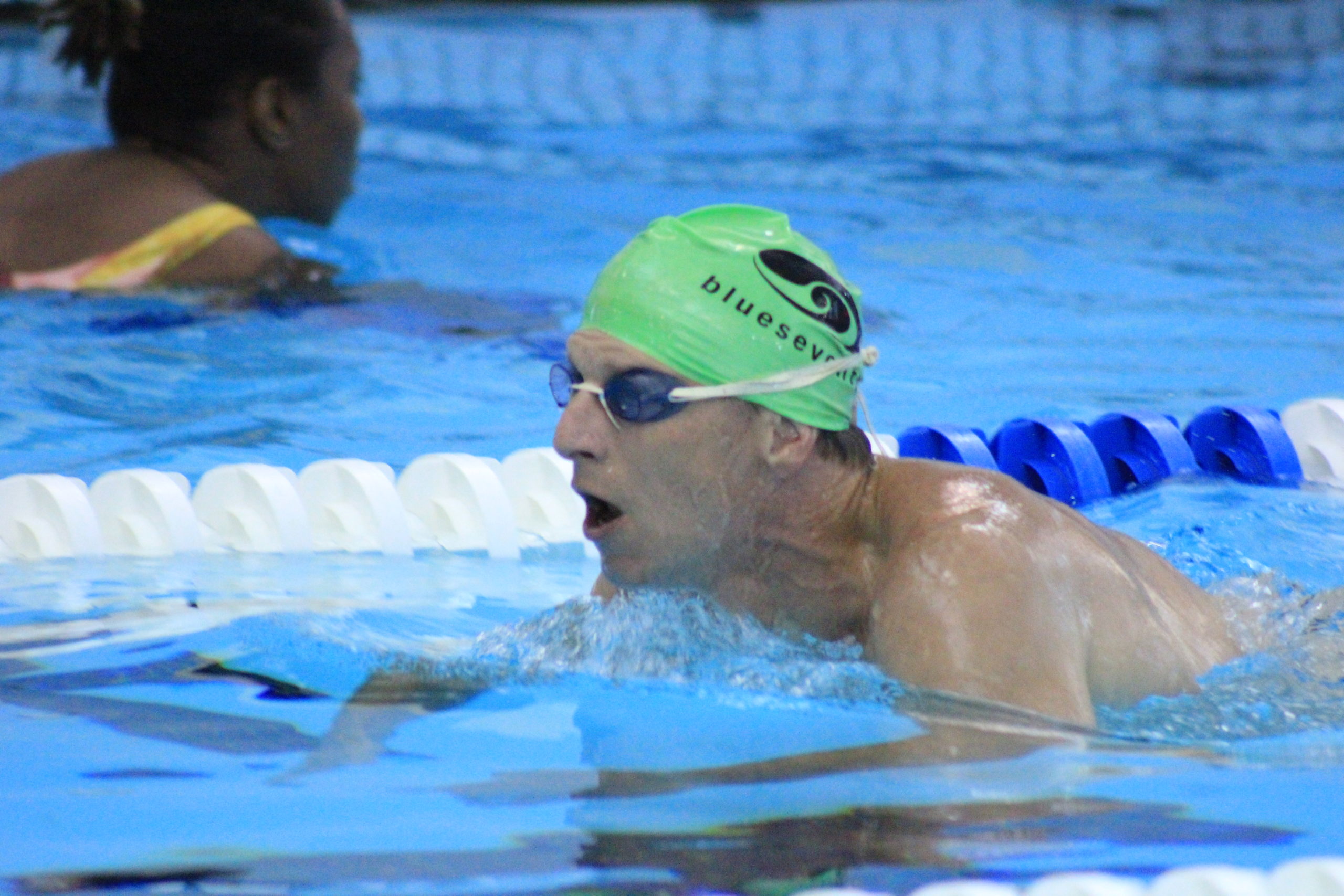
6.) Water Safety Provides Protection for the Whole Family
The kids in your life are watching you, and whether you know it or not, they are imitating your actions. If you don’t get into the water or express your distrust of large bodies of water, you’re subconsciously teaching them that safety in the water is not a priority. Children are at a higher risk of drowning than many people realize; it’s the second leading cause of accidental injury-related death for children age 14 and younger. Instead of showing distrust of aquatic activities, promote respect for the water by signing up for lessons and passing down an important life skill to the next generation.
You are never too old, too busy, or too inexperienced to learn how to swim properly. Whether you’re learning as a bonding activity, to save yourself in an emergency, or even to protect your kids, adult lessons are for you. Swim for it!
Check out the Richmond-based nonprofit SwimRVA, which works to to change lives through aquatics with a vision to drownproof Richmond.
Follow us for the latest! #SwimForIt!
The Mission of SwimRVA is to change lives through aquatics with a vision to drownproof Richmond. We promise to serve as a catalyst for regional aquatics and community-wide focus on water safety, health and fitness, sports tourism, and competitive aquatics. Donate today to help support our mission.

